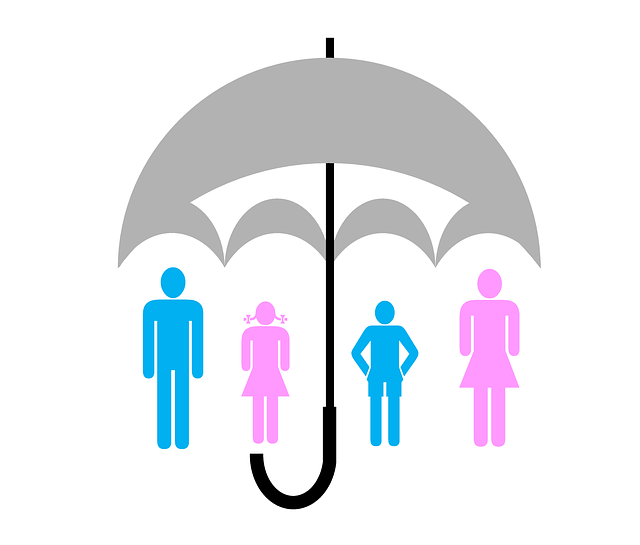Business interruption can arise from diverse unforeseen events, impacting operations and revenue. Understanding what business insurance covers, especially interruption coverage in general liability/property policies, is crucial for enterprises seeking financial protection and continuity. This includes compensation for lost revenue, alternative site operations, and quick recovery through property damage repairs, income replacement, liability claims handling, and additional expenses during crises like natural disasters, cyberattacks, or civil unrest. Exclusions vary; business owners should meticulously review policies, consult experts, and tailor coverage based on industry and location-specific risks to ensure comprehensive protection.
In today’s unpredictable business landscape, understanding what does business insurance cover, particularly for interruption, is crucial. This comprehensive guide explores the dynamics of business interruptions, their frequent causes, and how specialized insurance can mitigate risks. We delve into key coverage components, common exclusions, and essential assessment strategies to ensure robust protection. Real-world case studies highlight successful claims, underscoring the value of proactive risk management.
Understanding Business Interruption: When and Why It Occurs

Business interruption can occur for a variety of reasons, from natural disasters like floods or earthquakes to man-made events such as cyberattacks or civil unrest. It happens when a business is forced to cease or reduce its operations due to unforeseen circumstances beyond its control. This could be a result of property damage, supply chain disruptions, or even government orders during public health crises.
Understanding what does business insurance cover in these scenarios is crucial for any enterprise. Business interruption coverage, typically included in comprehensive general liability or property insurance policies, provides financial protection during such periods. It helps businesses recover lost revenue and continue operations at an alternative location until they can resume normal activities.
The Role of Business Insurance in Mitigating Risks

Business insurance plays a pivotal role in mitigating risks and ensuring the financial stability of organizations. It provides a safety net during unforeseen events, such as natural disasters, cyberattacks, or civil unrest, which can disrupt operations and cause significant financial losses. By understanding what business insurance covers, companies can better prepare for potential disruptions and minimize their impact.
What does business insurance cover? Typically, it includes protection against property damage, loss of income due to business interruption, liability claims, and extra expenses incurred during the recovery process. This comprehensive coverage helps businesses stay afloat, maintain employee welfare, and quickly resume operations after a crisis, thereby reducing downtime and financial strain.
Key Components of Coverage for Business Interruption

Business interruption insurance plays a crucial role in safeguarding against unforeseen events that can halt operations, and understanding its key components is essential for any business owner. This coverage compensates businesses for losses incurred during periods of temporary closure due to covered perils such as fires, storms, or cyberattacks.
The primary elements of business interruption coverage include the duration of the interruption, the cause of loss, and additional living expenses. Policyholders can expect reimbursement for the cost of repairing or replacing damaged property, as well as ongoing expenses like rent, wages, and utility bills during the recovery period. Some policies also offer extensions for extra expenses incurred due to market conditions, like a decline in customer demand, or extended periods of closure beyond the initial covered event.
Exclusions and Limitations to Be Aware Of

Business interruption insurance is a crucial component of any comprehensive risk management strategy, but it’s essential to understand what it does and doesn’t cover. While this type of insurance provides financial protection during periods of unexpected business closure or reduced operations, there are several exclusions and limitations to be aware of. These can include events like scheduled downtime for maintenance, strikes or labor disputes, and power outages that are not considered accidental or sudden.
Additionally, many policies exclude coverage for losses caused by war, terrorism, or civil unrest. Natural disasters, such as floods, earthquakes, and hurricanes, may also be excluded unless specifically added as riders to the policy. It’s critical for business owners to carefully review their policy documents and consult with insurance professionals to ensure they have adequate protection in place, taking into account the unique risks associated with their industry and location.
Assessing Your Business's Needs for Comprehensive Protection

When it comes to safeguarding your business, assessing your needs for comprehensive protection is a crucial step. Understanding what does business insurance cover is essential in this process. Business interruption coverage, often overlooked, plays a pivotal role in ensuring your company’s resilience during unforeseen events. This type of coverage is designed to provide financial support if operations are disrupted due to factors like natural disasters, cyberattacks, or civil unrest.
Comprehensive protection involves evaluating specific risks relevant to your industry and location. For instance, businesses in areas prone to natural calamities may require enhanced coverage for those events. Similarly, companies heavily reliant on technology should consider cybersecurity risks. By thoroughly assessing these needs, you can tailor your business insurance policy to offer the right level of protection, ensuring peace of mind and financial stability in the face of potential disruptions.
Real-World Scenarios: Case Studies of Successful Claims

In the realm of business interruption, understanding what your insurance policy covers is crucial. Real-world scenarios often provide insightful case studies that highlight successful claims and the impact of comprehensive business insurance. Consider a small retail store hit by a major power outage due to a storm. Despite the temporary closure, the store’s policy covered lost revenue during the shutdown, enabling them to recover quickly with financial assistance for essential expenses like employee salaries and utilities.
Another example involves a tech startup forced to relocate due to a natural disaster. Their business insurance not only covered the physical move but also provided compensation for disrupted operations and potential loss of clients. These scenarios underscore the significance of tailored business interruption coverage, ensuring that businesses can navigate unforeseen challenges with financial support and resilience.
